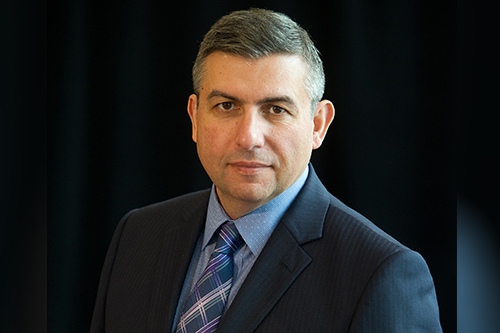Employers can help with ‘Pay yourself first’ programs: CPA president

More than half (58 per cent) of Canadians say that they feel more stressed about their finances due to the pandemic.
Perhaps even more worrying, one in five respondents say that they would consider returning to work even if they felt sick for fear of losing their job, finds a survey by the Canadian Payroll Association.
In addition to personal financial stress, one in three working Canadians say they are afraid of losing their job, while over half (54 per cent) say that their company has been seriously impacted by COVID-19. Sixty per cent are concerned about the Canadian economy overall, finds the survey of 4,264 workers.
‘Pay yourself first’ programs
HR professionals should pursue a few simple strategies and a broad-based communication effort to help reduce this financial stress, says Peter Tzanetakis, president of the Canadian Payroll Association.
Encouraging simple savings strategies will both change behaviour and strengthen employees’ financial and physical resilience in the face of a potential second wave, he says.
“One way that employers can minimize the impact of financial stress on working Canadians is offering financial education or access to programs that encourage savings through payroll.”
“Pay yourself first” programs are a straightforward arrangement whereby a small portion of an employee’s paycheque is deposited in a separate savings account, says Tzanetakis. The program is automatic and creates a steady accumulation that can serve both retirement or the arrival or a rainy day. The idea is that even a small, regular contribution encourages a habit of better money management on the part of employees.
Communication about the program and incentives to participate can help workers deal with this stress, he says. Pay yourself first programs, offered by about half of all Canadian employers, have seen high uptake when they’re implemented automatically upon onboarding with an opt-out option.
As well, they’re particularly effective when the employer offers a matching program, equalling the employee’s three to five per cent contribution and effectively giving them some “free money,” says Tzanetakis.
While small contributions like this might seem small in the face of a global pandemic and deep recession, a 2020 study from by the Western-Laurier Financial Data Analytics Laboratory found that the greatest source of financial stress is the ability to absorb a brief financial shock like missing a paycheque -- more than age or income.

Peter Tzanetakis
Engaging employees
There’s a wider responsibility, too. If so many employees are still willing to go into work when they feel sick and potentially spread a virus that can do serious long-term damage to our society and economy, employers should be encouraging and facilitating a behavioral change that removes that pressure. That all begins with communication, says Tzanetakis.
“Employers really have a vested interest in engaging employees and communicating effectively,” he says.
“We've seen the impacts of COVID-19 already, a lot of people have lost their jobs. But there's a lot of people that are still working and a number of organizations and companies are still performing relatively well or have plans to mitigate the risks of COVID-19. It's important that employers and HR professionals continue to clearly communicate those plans, and how well organizations are doing and how they're faring in the crisis, so that it can reduce that anxiety of their staff and employees.”




